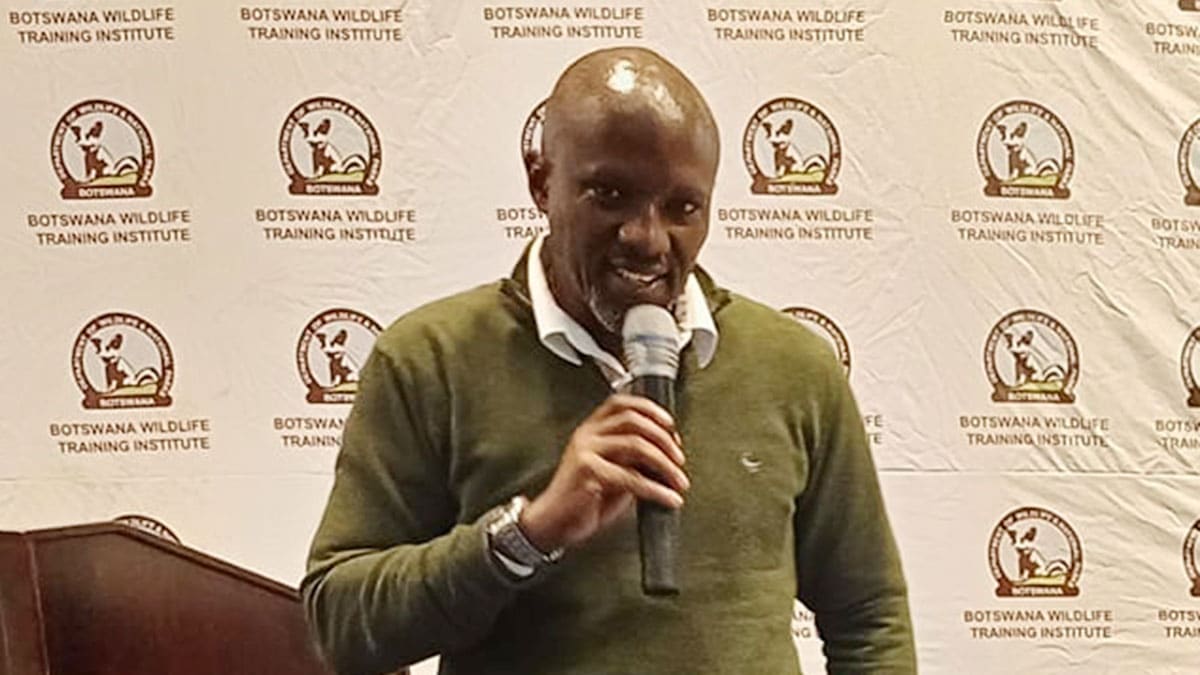PS tells the West to mind their own business as trophy importation ban debate rages on
From time immemorial, humans and wildlife have co-existed in the vast savannahs and the rich African forests.
Man only hunted animals for sustenance, and cases of animal attacks on humans were few and far in between.
Whenever they occurred, it was simply viewed as a natural cycle of life, where only superior species survived.
However as humans continued to encroach on wildlife territories, conflicts arose which are now threatening the very existence of animals.
Interventions had to be put in place to arrest the situation, and seasonal hunting was then seen as one way of controlling wildlife herds that have now become a menace to farmers.
Ironically, it is these hunting practices which are currently threatening to strain relations between the West and Southern African countries, as Europe calls for total ban on trophy hunting, and importation of animal trophies.
The debate has been raging on for years and Botswana which has the largest herd of elephants standing at 130 000 out of 450 000 global herd, is on a campaign against the proposed import ban.
The Acting Permanent Secretary in the Ministry of Environment and Tourism, Boatametse Modukanele says it is time Botswana take her place in the lucrative trade of animal trophies.
He said at the moment safari companies are making a killing through hunting quotas at the expense of local communities.
“Safari companies buy from locals and sell these animals to the international markets. We also want to sell our elephants to the highest bidders in Europe,” said Modukanele during the recent Hospitality And Tourism Association of Botswana (HATAB) Conference in Maun.
The PS dismissed the notion that Batswana cannot go out there and directly sell elephants the same way hunting sport safari does.
“In the same manner people who used to think photographic tourism was a preserve for the white community were proven wrong, Batswana will eventually compete in the international market space and sell their elephants,” he said.
Modukanele’s contention is that as a country Botswana has been doing well in conservation hence its large elephant population.
“Hunting has always helped in controlling the animal population and therefore decreased human-wildlife conflict across the country,” said Modukanele.
He said the country’s elephant population shows that: “We are doing something very very good.
“Europeans cannot therefore come dictate to Africa about animal conservation when it is actually the Europeans who depleted these species from their own continent and other parts of Africa, including Ivory Coast, a country which used to be an elephant hunting ground by Europeans years ago,” fired the Permanent Secretary.
“I have worked in communities, I have seen someone after being trampled by an elephant and I had to go to their families and say “your son who left in the morning has been killed by an elephant” These are painful and traumatic things to do,” revealed Modukanele to a silent and sombre audience.
While government and communities co-existing with wildlife are against the import ban, some diehard conservationists stand on the opposing side.
One person who has a divergent view is Mpho Tiego, a community development activist and a politician.
Tiego, a member of the opposition party Alliance for Progressives (AP) says Botswana is missing the point in the whole debate.
“I think we are not listening to what our stakeholders are saying. First of all is it true that Europeans decimated African wildlife populations? Yes in the bygone era they did, and you know what we call that era? An era of brown economy where we liquidated environmental assets for profit, we have moved on now, we are in the 21st century and we are talking about the green economy, and I believe my government has embraced green economy,” he said.
Speaking at the same forum Mpho noted that the problem with hunting today is not for subsistence but for sports.
He further contended that Botswana do not have abundance of elephants but rather refugee elephants that need to be released through safe passages so that they can migrate back to wherever they originally came from instead of killing them because 130 000 is not a lot of elephants.
“That is why the PS presides over the KAZA (Kavango Zambezi Transfrontier Conservation Area) because we have finally figured out that the best way to conserve wildlife is to trigger ecosystem connectivity, allow the elephants to go back in their own migratory routes and I’m going to ask who is funding the KAZA projects, is it government of Botswana, Zambia or Zimbabwe? No it is Germany. We are receiving a lot of aid so we can do things right,” added Tiego.
He further said that communities wants elephants to be hunted only because they are not benefiting much from them.
“Our people are suffering because the conflicts are not being mitigated. All the money made in the delta goes to Gaborone. Have you ever thought of what happens to a child who witnesses their father being killed by an elephant, have you ever thought of how much trauma they go through, has there ever been counselling for them!” fired Tiego.






